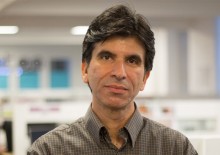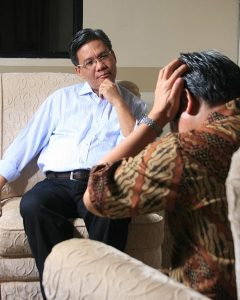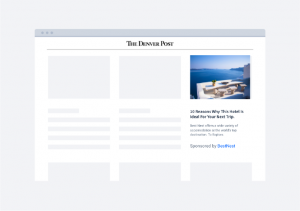
Bad news, marketers and website designers—customers aren’t all that interested in the snazzy features on your websites and mobile apps, like widgets showcasing your clever social media campaign. They just want the page or app to load faster and be easy to navigate, whether they’re using a computer, tablet, or mobile device.
That’s the idea behind Yottaa, a fast-growing Boston software company that specializes in website and mobile app optimization. For users, Yottaa says that means faster loads and a better experience, and for the company’s customers that can turn into increased user engagement, happier customers, and demonstrably more sales.
The first step, though, is designing a better page or app, Yottaa president and CEO Vick Viren Vaishnavi said. Bad sites frustrate customers, lead to social media complaints, and hurt sales.
“You have to boost performance, it’s a table stakes thing,” Vaishnavi said.
At the simplest level, he said, that can mean creating a fast-loading page that works on a computer or mobile Web browser, Vaishnavi said. One way Yottaa does that is by prioritizing what gets loaded first, so the less important things from third party sources don’t get in the way. On the next level, that can mean predicting what items an e-commerce customer is interested in buying, prioritizing content a retailer want the user to see, and making purchases easier to complete.
By tracking and optimizing an app or site’s performance, Yottaa is able to understand what the user is seeing and what snags might drive him or her away from the site, which could cost a sale.
“If you cannot capture the end-user’s experience, you’ll lose them, without even realizing it,” Vaishnavi said. “We have the pulse of the end-user’s experience at all times, in real time. We can tweak and tune the performance based on what the user’s expectations are, but more importantly we do it in the user’s context.”
Beyond improving performance, Yottaa is able to tell its customers how their customers are engaging with their sites and apps and show the impact improved sites and apps have on their business.
Yottaa’s software is in the cloud, and Vaishnavi said customers can install it without changing their existing software and hardware. So far Yottaa’s highest profile customers are Moosejaw, an apparel company, and Fathead, a sports memorabilia company. But Vaishnavi’s ambitions are larger—he wants Yottaa to aim for enterprise customers on the Global 2000 lists of biggest companies
Vaishnavi became Yottaa’s president and CEO in September, replacing co-founder Coach Wei, who became Yottaa’s executive chairman. Wei founded Yottaa in 2009, along with chief technology officer Bob Buffone.
Vaishnavi said the change wasn’t because the company needed to change direction, but instead to put someone at the helm with experience taking companies from what he calls the “entrepreneurial phase” through their growth phase of scaling and expansion.
Vaishnavi has that experience. His past three companies either went public or were acquired in large deals. He led Aveksa until its 2013 acquisition by EMC, and before that he was chief marketing officer with BladeLogic and helped it grow from a startup to a public company.
And Yottaa has been growing. The company wouldn’t release specific numbers, but said it saw a 138 percent increase in revenue last year, while new bookings were up 90 percent. Vaishnavi said Yotta has about 120 customers.
Yottaa also is adding new employees. It has about 75 now, and Vaishnavi said he thinks that number will be between 125 and 150 by the end of the year. To accommodate them, the company is moving to a new 15,000-square-foot headquarters in Waltham.
Vaishnavi said that growth has come while the company has raised comparatively little VC for a software-as-a-service company. He said Yotta has raised about $ 40 million, “which is nothing compared to any SAAS company.” That includes a new round at the close of 2014. Investors include Intel Capital and General Catalyst Partners.
“We’re only scratching the surface in terms of where we are with the long-term investment we’ve taken,” Vaishnavi said.
(238)
Report Post







